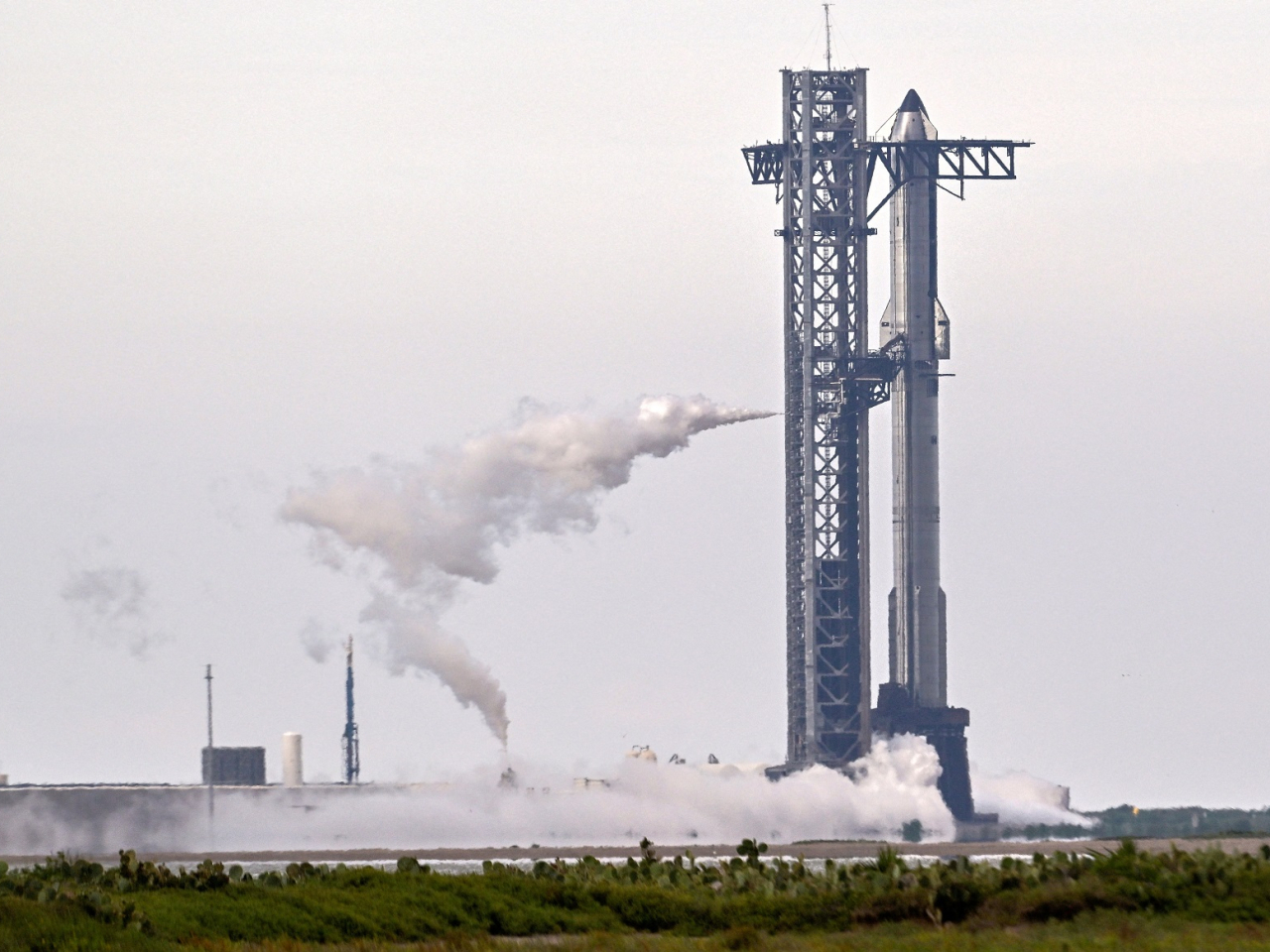SpaceX canceled a planned test flight for its Starship megarocket on Sunday, saying it needed time to troubleshoot problems, in the latest setback for Elon Musk's behemoth after a series of explosive failures.
The problems have led some observers to doubt whether the world's biggest and most powerful launch vehicle will be capable of taking humans back to the Moon – a step in Musk's dream of colonising Mars.
The rocket had been planned to blast off from the company's Starbase in southern Texas at 6.30 pm local time for its tenth flight.
However around 15 minutes before lift-off, SpaceX announced that the launch had been called off.
"Standing down from today's tenth flight of Starship to allow time to troubleshoot an issue with ground systems," it said on X, without elaborating.
SpaceX had earlier said that the rocket's upper stage was being fueled, suggesting the launch was on.
Musk himself had posted on X an hour earlier that "Starship 10 launching tonight."
According to road closures nearby Starbase, the tenth Starship flight could still launch on Monday or Tuesday, but SpaceX did not offer a timeline.
The hour-long, uncrewed mission had been planned to put the upper stage through a series of trials as it flew halfway around the world before the lower stage booster splashed down in the Indian Ocean.
Starship is central to billionaire SpaceX founder Musk's ambition of colonising Mars, while Nasa is counting on a modified version to return Americans to the Moon.
However the rocket's upper stage – which is the spacecraft intended to carry crew and cargo – has exploded in all three previous test flights in 2025.
Two of the failed tests sent debris raining down over Caribbean islands, while the other reached space before breaking up.
Then in June, another upper stage exploded on the ground during a "static fire" test.
The 123-metre-rocket is designed to eventually be fully reusable, but the company has not yet managed to get the upper stage to deliver a payload to space or return to the launch site.
After an investigation into the previous failed flight in May, SpaceX said it would "intentionally stress the structural limits" of the upper stage, in the hopes of sounding out a successful return.
SpaceX has succeeded in catching the lower stage booster with giant "chopstick" launch tower arms three times, but the tenth flight is not planned to attempt the feat.
The company's "fail fast, learn fast" ethos has long been credited with its remarkable track record, giving the US company a commanding global lead in launches thanks to its Falcon rocket family.
But the Starship setbacks have raised doubts over whether the company can repeat that success with easily the biggest rocket in history. (AFP)





